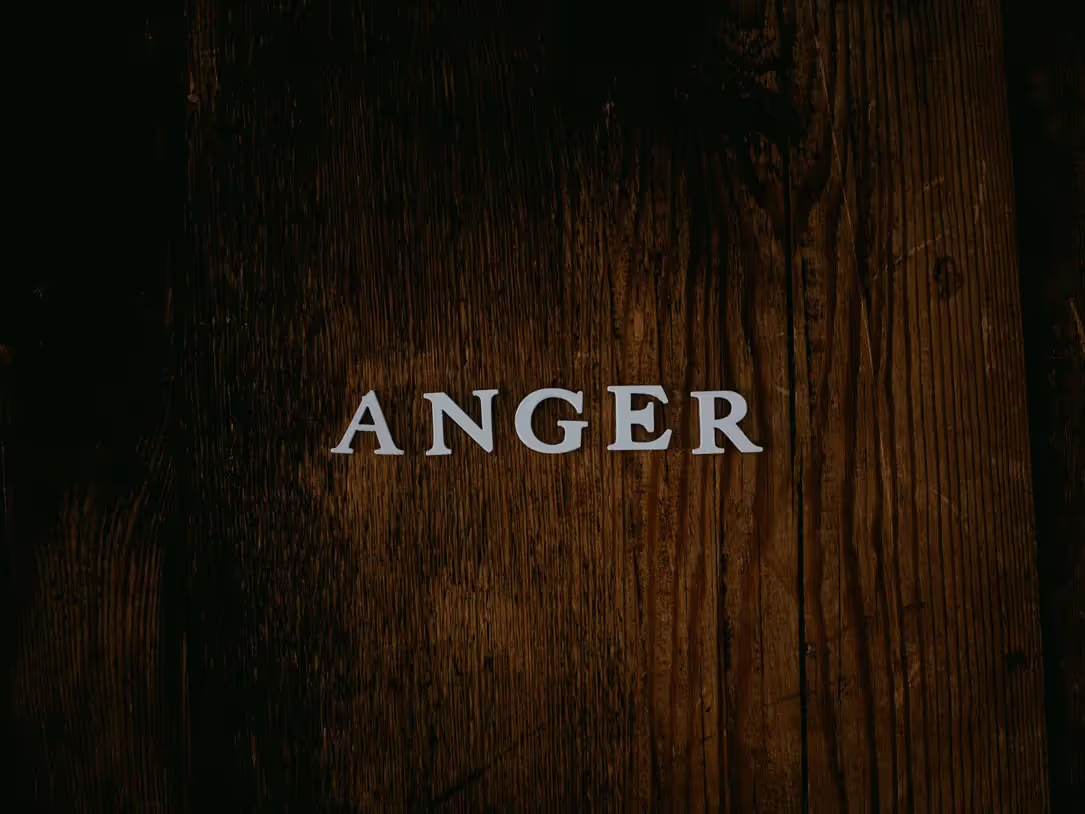Dealing with a partner who has anger issues can be difficult and frustrating. It's important to remember that it takes two to tango, so if your partner is...
.avif)
Dealing with a partner who has anger issues can be difficult and frustrating. It's important to remember that it takes two to tango, so if your partner is having difficulty managing their emotions, then it's up to both of you to work together toward a healthier relationship. This article will provide tips, ideas, and strategies on how to effectively deal with a partner with anger issues. We'll discuss ways for both partners in the relationship to better understand each other and communicate more effectively as well as offer practical advice on how best to navigate these challenging times.
With the right approach, it is possible for couples dealing with this issue to reach an understanding that works for them both.
When dealing with a partner who has anger issues, it is important to understand the possible underlying causes.
These can include:
It can be helpful to explore these possible reasons in order to find more effective ways of addressing them.

With a partner who has anger issues, it can be difficult to establish trust in the relationship. This can lead to more arguments as minor disagreements between partners may seem like major conflicts due to distrust. The stress of dealing with someone who has angry outbursts on an ongoing basis can often be exhausting and emotionally draining. Their anger issues may affect their ability to be emotionally available or intimate in the relationship, which can create feelings of disconnection and further strain the connection between partners. Both partners need to seek help in order for the relationship to heal and become healthier.

When dealing with a partner who has anger issues, it is important to set boundaries and communicate effectively in order to protect yourself.
This may include establishing clear lines for acceptable behavior that both partners must follow in the relationship and setting limits on what can be discussed or what kind of language can be used when discussing difficult topics.
Communicating your needs clearly and without judgment is key to maintaining an effective dialogue with your partner.
Examples of boundaries that may be helpful include specifying that physical violence or verbal aggression will not be tolerated, as well as expressing your feelings honestly rather than attempting to please or appease your partner.
Examples of effective communication might include using "I statements" (e.g., "I feel hurt when you yell at me") rather than accusatory statements, practicing active listening techniques such as acknowledging your partner's feelings before expressing your own opinion and speaking calmly and respectfully even during difficult conversations.
When learning how to deal with a partner who has anger issues, problem-solving strategies can be very useful. Start by talking openly about the problem and getting input from both partners. Talk about underlying feelings and triggers that cause the anger, as well as review which behaviors are not acceptable in the relationship. Try collaborating on solutions and encourage each other to talk through emotions in a non-judgmental way. Develop an action plan together for how you will handle future situations, such as deep breaths when feeling triggered or taking timeouts if needed.
Encourage each other to practice self-care techniques such as mindfulness or relaxation exercises to help reduce stress levels, and remember to give positive feedback when progress is made. By using problem-solving strategies, it can be easier to manage your partner's anger issues in a more constructive manner.
Seeking professional help may be beneficial when trying to manage a partner's anger issues. A mental health specialist can provide unbiased advice and guidance on how to handle the situation more effectively. They can also provide strategies for dealing with your own emotions in the midst of a difficult situation, as well as teach communication skills that can be used between both partners.
A licensed therapist can also assess if underlying issues such as depression or anxiety are contributing to the problem and provide appropriate treatment options. In addition, they can offer support and encouragement in recognizing strengths and resiliency while helping to build healthier relationships in the process. Seeking professional help is an important step when learning how to better cope with your partner's anger issues.
Nurturing your relationship with a partner who has anger issues is essential for aiding in their healing. Communication is key to understanding how to best support each other, especially when navigating difficult conversations. Talk openly and honestly about how this situation affects each of you, and make sure that your words are heard without judgment. Expressing love, concern, and acceptance can help create an atmosphere of safety and trust.
Respect their feelings and acknowledge any progress made in order to build their confidence. It's important to take time for yourself as well – practice self-care activities to reduce stress levels so that you're better equipped to handle any difficult situations that may arise. By nurturing your relationship, it can be easier for both partners to move forward with positive solutions for dealing with anger issues.
Managing a partner's anger issues can be challenging, but there are steps that you can take to help.
By using effective communication techniques, problem-solving strategies, and seeking professional help when needed, it is possible to nurture your relationship in order to provide the support necessary for healing.
It is important to remember that progress takes time – stay patient with yourself and your partner as you navigate this journey together.
With dedication and understanding, it is possible to create positive solutions for dealing with anger issues and build healthier relationships along the way.
EFT helps couples identify and de-escalate negative emotions and interactions, replacing them with positive cycles of communication and support. This process fosters a deeper understanding and emotional responsiveness between partners.
It can be challenging when one partner is hesitant about therapy. It can help to have open discussions about the potential benefits of therapy and to reassure them that it's a supportive and non-judgmental environment.
While complete recovery from abandonment issues may not be possible for everyone, it is possible to manage symptoms effectively with the help of professional support, self-care practices, and ongoing personal development. With time and effort, it is possible to build healthier relationships and increase overall well-being.
If your child continues to struggle with persistence, try to understand the root cause of their resistance.
This could be a lack of self-confidence, fear of failure, or other underlying issues. Provide support, consult with a teacher or counselor, and consider engaging in activities that promote persistence.
Any active duty, retired, or eligible family member of a military service member who has Tricare coverage can access marriage counseling if it's deemed necessary for treating a diagnosed mental health condition.
The key signs of relationship insecurity include feelings of jealousy and possessiveness, low self-esteem, difficulty trusting your partner, fear of rejection or abandonment, and anxious thoughts. If you are experiencing any of these symptoms, it may be beneficial for you to seek professional help.